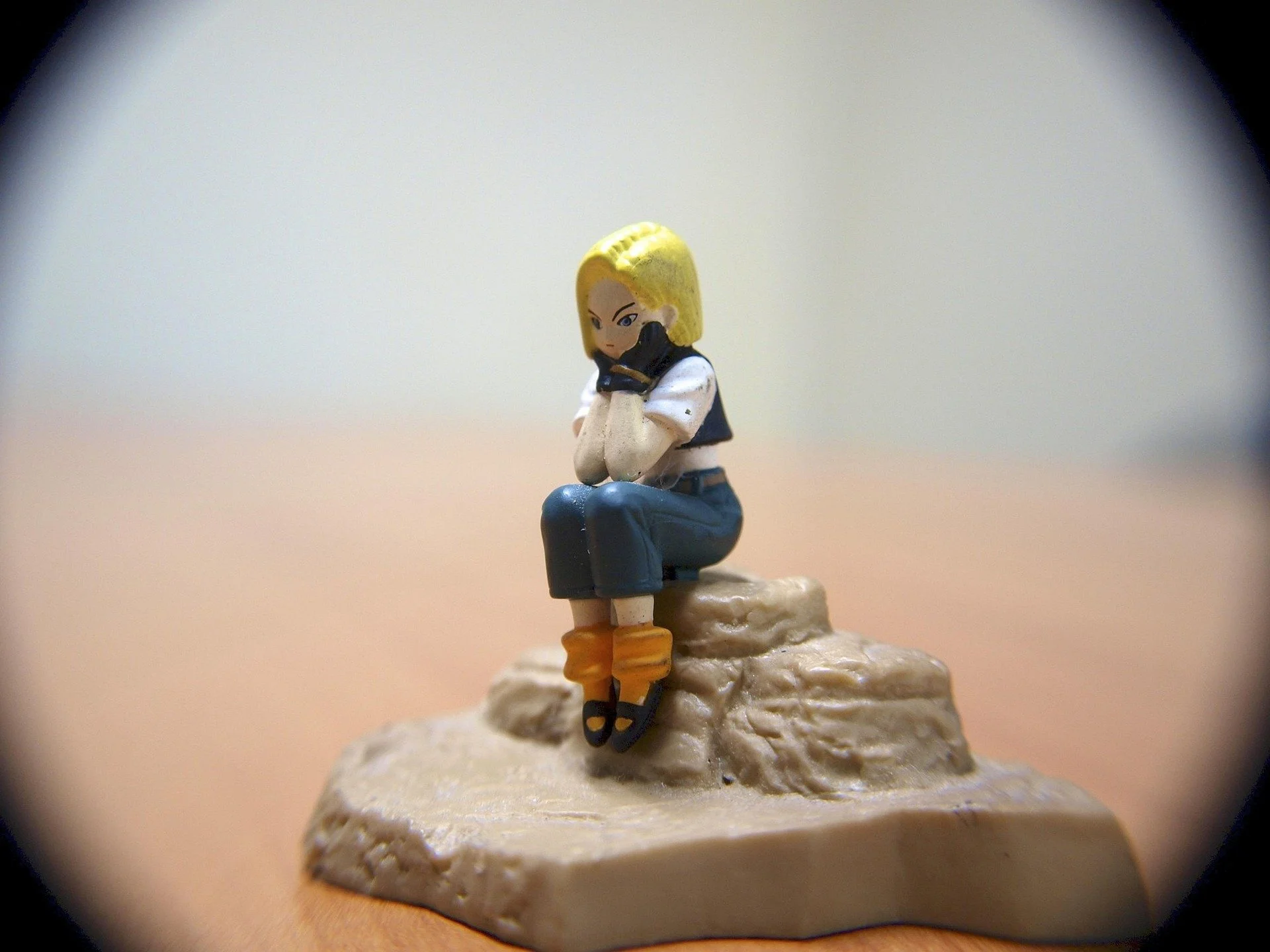Managing Depression as a Health Coach - And What I Want You To Know
A toy figurine sitting on a rock looking sad or bored
If you search for health coaches online, you’ll likely find a sea of perfectly curated lives—young, energetic professionals with impeccable diets, glowing skin, and a lifestyle that screams "I have it all figured out!"
Then there’s me ha!
Hi, I’m a health coach, and I struggle with depression. My life is far from picture-perfect. I don’t have all the answers, but what I do have is a lot of experience—both personal and professional. I’ve learned a lot over the years about managing mental health, and today, I want to share some of those insights with you.
My Journey with Depression
Sometimes, I wonder if I was born with depression. I can’t remember a time when it wasn’t there.
As a child, I didn’t understand why I felt so sad all the time or why thoughts of death crept into my mind while my friends played outside. Back then, mental health wasn’t as widely talked about as it is today, and I definitely felt isolated in my struggles.
When the internet became more accessible, I finally found the words for what I was experiencing: depression. Later, I sought help from my doctor, started antidepressants, and attended therapy. These things helped—but they didn’t "cure" me. And that’s something I’ve come to accept: depression is complex and there usually isn’t a quick fix available.
What Depression Really Feels Like
For those unfamiliar, depression isn’t just "feeling sad"—it’s an illness that affects your mind, body, and daily life. Some symptoms include:
✅ Persistent sadness or numbness
✅ Fatigue and body aches
✅ Changes in appetite and sleep patterns
✅ Difficulty concentrating
✅ A sense of hopelessness
(For more details on depression, check out this resource.)
Lessons Learned
1. You Are Not Alone
It might sound cliché, but it’s true—you’re not alone in this. I’m living proof of this. I used to feel like I was the only one struggling, but but the reality is depression and low mood is (unfortunately) quite common.
Support is out there. Reach out. Whether it’s a therapist, a trusted friend, or an online community, connection is key. (If you or someone you know is struggling, Aware has great mental health resources.)
2. Reframe Negative Thoughts
Depression loves to whisper lies:
❌ "You’re not good enough."
❌ "You’re a failure."
❌ "You’ll never feel better."
I’ve learned to challenge these thoughts. If I drop a glass and it shatters, my brain might say, "I’m such an idiot." But the truth? Everyone drops things. Instead of spiraling, I try to respond as I would to a friend: with kindness, not criticism.
3. Nutrition Matters
Your diet plays a massive role in mental health. Nutritional deficiencies can contribute to depression, so it’s worth checking if your body is getting what it needs.
When I’m struggling, my appetite either disappears or craves junk food. To make things easier, I keep my kitchen stocked with:
🥦 Frozen chopped veggies (for quick, easy meals)
🍓 Frozen fruit (great for smoothies when I don’t feel like eating)
🥑 Healthy fats (like nuts and avocados, which support brain health)
Even small changes in diet can make a big difference in how we feel.
4. Movement Helps (Even When You Don’t Feel Like It)
Exercise is a proven mood booster, but when depression hits, the last thing I want to do is work out.
So instead of forcing myself into intense workouts, I meet myself where I’m at:
✔ Some days, a simple walk outside is enough.
✔ If I can, I go to a park or nature spot (nature is scientifically proven to reduce stress).
✔ On really tough days, just getting dressed and taking a shower helps.
The goal isn’t perfection—it’s momentum.
5. Be Gentle with Yourself
There’s a reason I call myself The Gentle Health Coach—because the biggest lesson I’ve learned is to extend grace to myself. There is no shame in dealing with mental health struggles. It doesn’t make you any less of a person. You deserve kindness. You deserve to treat yourself with gentleness. Some days will be harder than others, and that’s okay. Don’t make them any harder for yourself!
Final Thoughts: You Are More Than Your Struggles
If you’re reading this and you’re struggling, know this: you are not broken.
Your mental health challenges do not define you. You deserve support, compassion, and tools to help you feel better.
If you need guidance on your wellness journey, I’m here to help. Whether it’s through coaching, resources, or simply sharing my story, I want you to know you’re not alone in this.
💙 Need support? Let’s connect. My DMs and inbox are always open.
